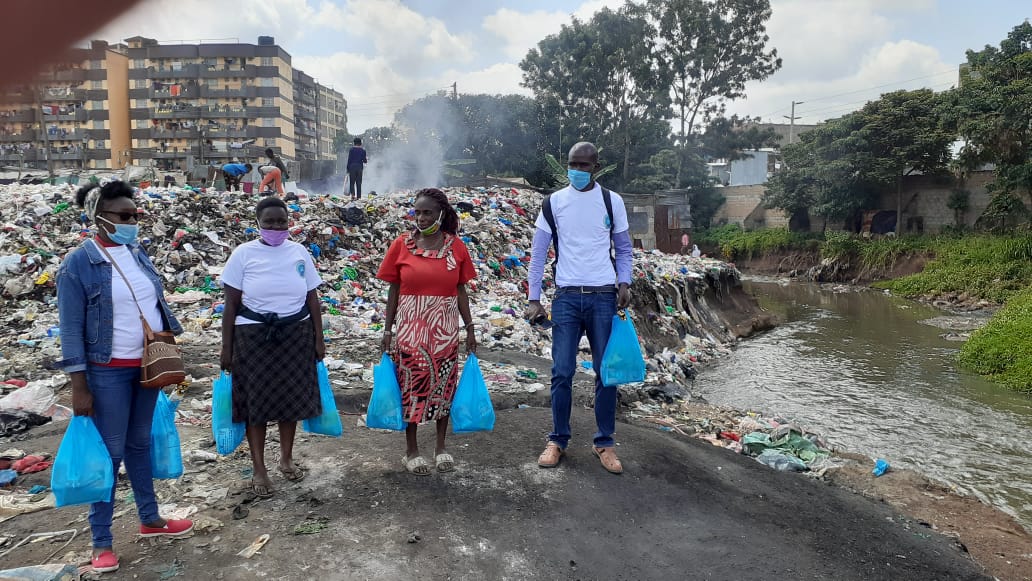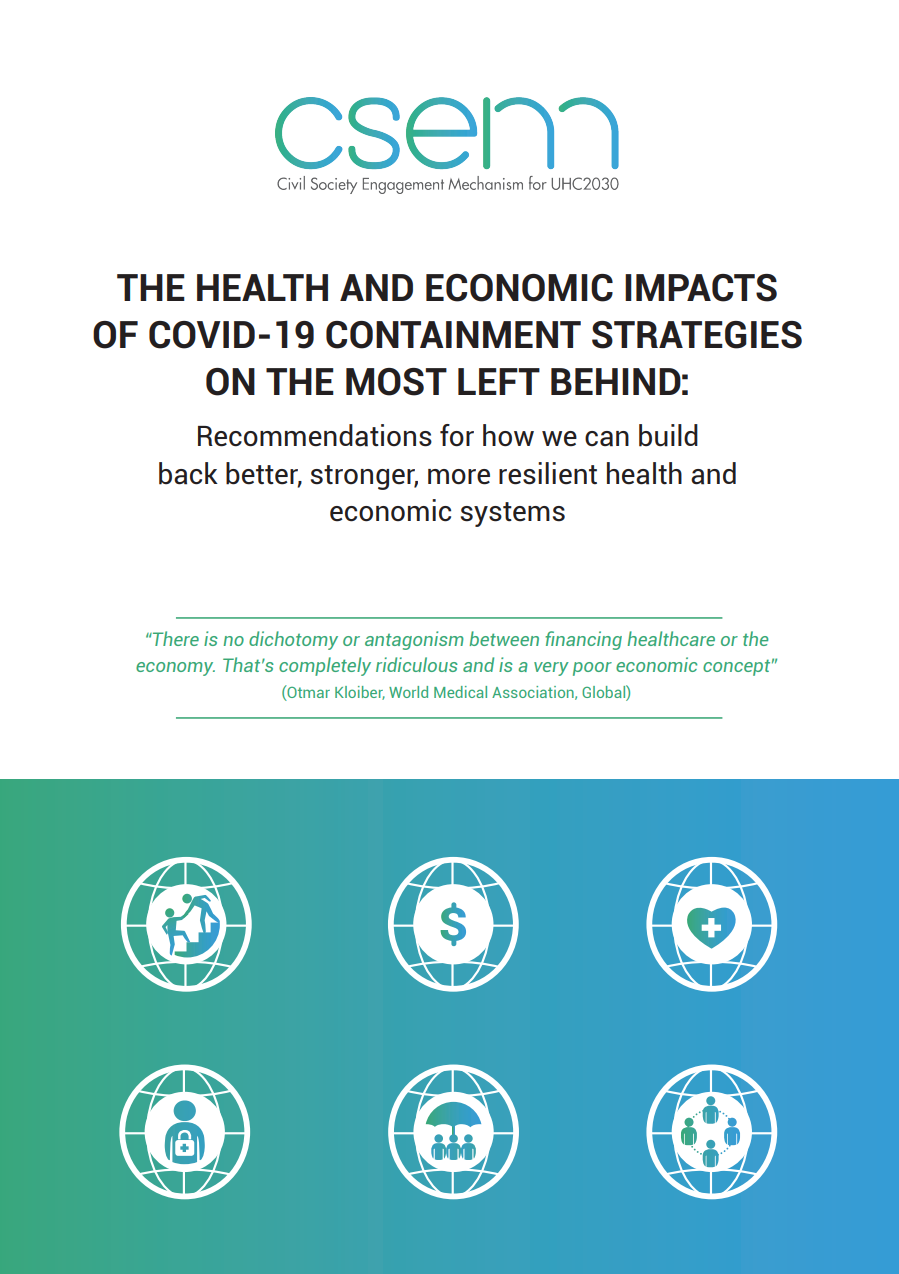
Pictured: Civil society representatives of the Ugenya Youth and Community Development Project delivering supplies in slum areas of Dandora near Nairobi, Kenya
Today, the Civil Society Engagement Mechanism for UHC2030 (CSEM) with Equal International published ‘The health and economic impacts of Covid-19 containment strategies on the most left behind: Recommendations for how we can build back better, strong and more resilient health and economic systems.’
The paper presents civil society’s perspectives and critical experiences of government responses to the COVID-19 pandemic with specific considerations on the health and economic impacts of COVID-19 policies and containment measures on populations who are most at risk and marginalized.
It provides an important civil society intervention to the decision framework soon to be released by the World Health Organization (WHO) and the Organisation for Economic Co-operation and Development (OECD). This joint publication aims to assist countries with inclusive decision-making on social and movement policy measures during the COVID-19 pandemic. It will be launched on Thursday, 17 December (Register for the event; Learn more).
The health and economic impacts of Covid-19 containment strategies on the most left behind will also be introduced at the event and provide further guidance to policymakers in understanding and addressing the health and economic impacts of containment-related decisions.
The paper includes data from a literature review, 13 key informant interviews and a survey with over 100 civil society respondents from 42 countries. It examines key questions, such as who are most affected by the pandemic and its secondary impacts, what the direct and indirect impacts of COVID-19 and of government responses, whether national responses are adequately meeting the health and economic needs of vulnerable groups, and how inclusive decision-making for national pandemic responses has been.
Based on the analysis and reflections by civil society, six recommendations are presented for governments:
- Ensure the ‘leave no one behind’ vision is at the centre of COVID-19 preparedness plans and responses.
- Focus on equity, gender-responsiveness, inclusion and financial protection in COVID-19 responses.
- Invest in resilient and strengthened health systems and infrastructure for universal health coverage, to ensure access to lifesaving health services for all, that can continue to provide quality health services while coping with pandemic outbreaks.
- National COVID-19 responses must protect healthcare workers from infection; mitigate the mental, psychological, and social impacts of their critical work; and meet the specific needs of women.
- Provide social protection packages particularly for marginalized ant at risk populations that are most affected by the economic impacts of containment strategies.
- Ensure inclusive and cross-sector representation and the meaningful participation of civil society in COVID-19 global and national response arrangements.
Overall, the paper highlights the need to center inclusion. To address a pandemic that has been exacerbating pre-existing inequalities, the responses must necessarily begin with and focus on populations who are most marginalized and vulnerable. Governments must work with civil society and communities at all stages of the COVID-19 response — including the containment phase — both to ensure an effective pandemic response and to build back better, stronger, more resilient health and economic systems.
Paper authored by Eliana Monteforte, Delphine Valette, and Anton Ofield-Kerr. Download the PDF.


